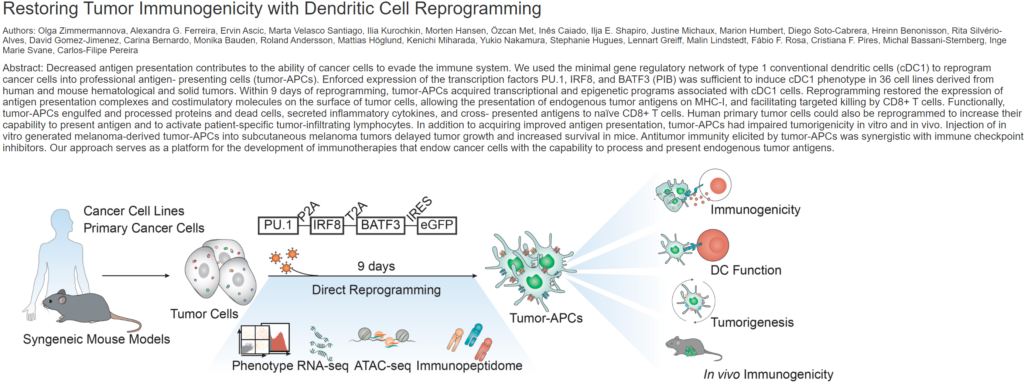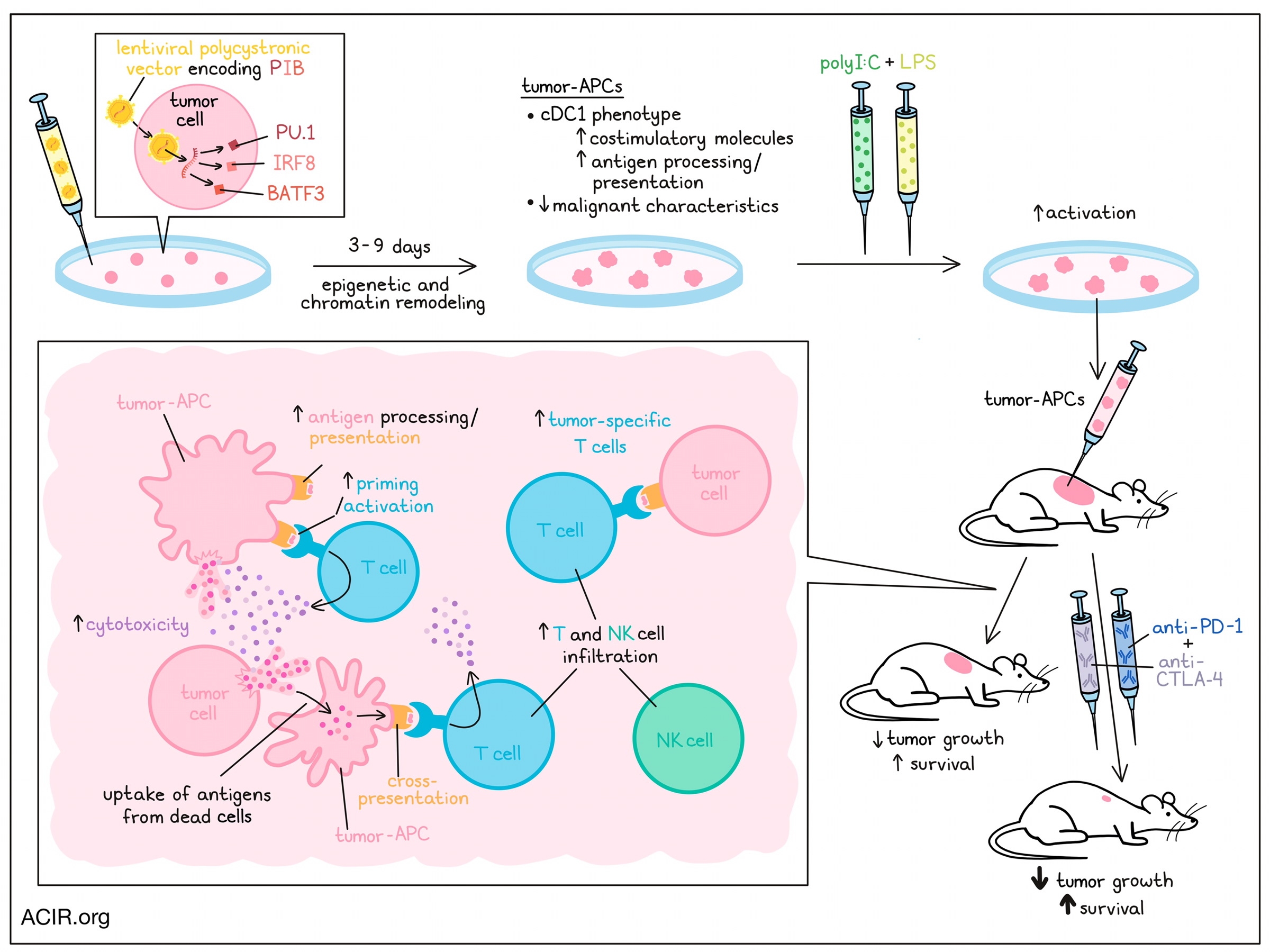Publications
Restoring Tumor Immunogenicity with Dendritic Cell Reprogramming

July 7, 2023 / Vol. 8, Issue 85
Science Immunology
Olga Zimmermannova, Alexandra G. Ferreira, Ervin Ascic, Marta Velasco Santiago, Ilia Kurochkin, Morten Hansen, Özcan Met, Inês Caiado, Ilja E. Shapiro, Justine Michaux, Marion Humbert, Diego Soto-Cabrera, Hreinn Benonisson, Rita Silvério-Alves, David Gomez-Jimenez, Carina Bernardo, Monika Bauden, Roland Andersson, Mattias Höglund, Kenichi Miharada, Yukio Nakamura, Stephanie Hugues, Lennart Greiff, Malin Lindstedt, Fábio F. Rosa, Cristiana F. Pires, Michal Bassani-Sternberg, Inge Marie Svane, Carlos-Filipe Pereira
Abstract
Decreased antigen presentation contributes to the ability of cancer cells to evade the immune system. We used the minimal gene regulatory network of type 1 conventional dendritic cells (cDC1) to reprogram cancer cells into professional antigen-presenting cells (tumor-APCs). Enforced expression of the transcription factors PU.1, IRF8, and BATF3 (PIB) was sufficient to induce cDC1 phenotype in 36 cell lines derived from human and mouse hematological and solid tumors. Within 9 days of reprogramming, tumor-APCs acquired transcriptional and epigenetic programs associated with cDC1 cells. Reprogramming restored the expression of antigen presentation complexes and costimulatory molecules on the surface of tumor cells, allowing the presentation of endogenous tumor antigens on MHC-I, and facilitating targeted killing by CD8 T cells.
Functionally, tumor-APCs engulfed and processed proteins and dead cells, secreted inflammatory cytokines, and cross-presented antigens to naïve CD8 T cells. Human primary tumor cells could also be reprogrammed to increase their capability to present antigens and to activate patient-specific tumor-infiltrating lymphocytes. In addition to acquiring improved antigen presentation, tumor-APCs had impaired tumorigenicity in vitro and in vivo. Injection of in vitro-generated melanoma-derived tumor-APCs into subcutaneous melanoma tumors delayed tumor growth and increased survival in mice. Antitumor immunity elicited by tumor-APCs was synergistic with immune checkpoint inhibitors.
Our approach serves as a platform for the development of immunotherapies that endow cancer cells with the capability to process and present endogenous tumor antigens.
Web-Based Application for Processed RNA-seq and ATAC-seq Data

https://cellreprolab.shinyapps.io/tumorAPC_atlas/
An Animated Video on the TrojanDC Technology
About the Illustration
Using the minimal regulatory network of type 1 conventional dendritic cells (connections and cells inside the horse), Zimmermannova & Ferreira et al. reprogrammed human and mouse cancer cells into dendritic cells. This strategy bypassed tumor evasion mechanisms and endowed tumor cells with professional antigen presentation leading to activation of specific CD8+ T cells (soldiers), and anti-tumor immunity in vivo. This study paves the way for a new class of cancer immunotherapies based on cell fate reprogramming. The illustration depicts a novel Trojan horse approach to cancer immunotherapy by reprogramming cancer cells to become traitors to their kind.
CREDIT: Sandeep Menon.
Summary and Interview by ACIR
Read here
